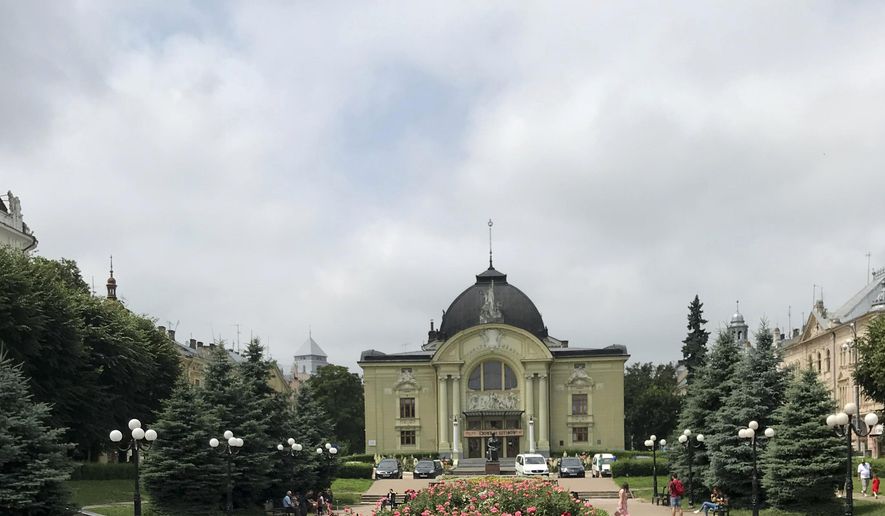Pope Francis on Tuesday decried “the forces of evil” that have brought “the suffering inflicted on so many frail and defenseless persons” in Ukraine.
His comments, in a letter read at the Faith in Ukraine interfaith summit in the city of Chernivtsi, appeared to equate Russian President Vladimir Putin with the biblical figure Cain, who slew his innocent brother.
“All this troubles our consciences and obliges us not to keep silent, not to remain indifferent before the violence of Cain and the cry of Abel, but instead to speak out forcefully in order to demand, in the name of God, the end of these abominable actions,” the pontiff wrote.
The summit meeting, held at the southwestern Ukrainian city’s main theater, is believed to be the first public event there since the war began Feb. 24. Two nonprofits, the Elijah Interfaith Institute and the Peace Department, organized the visits of a dozen faith leaders, who first met with refugees before the evening presentation.
“I realized that as religious leaders, we shouldn’t serve as human shields, and we shouldn’t serve as politicians, we have a message to bring,” Rabbi Alon Goshen-Gottstein, who directs the Elijah Interfaith Institute, told The Washington Times before the event.
“I realized, no, ours is a teaching and comforting vocation, we have to help people with their heart, with their soul, and with coping and survival strategies,” he added.
Market researcher Martijn Lampert of Glocalities told the gathering that the Dutch firm had identified caring, friendship, help, wisdom and freedom as five “common values” shared by people in Russia, Ukraine, Europe and globally.
“This means that there are higher values that have to do with the human heart that we all share,” Mr. Lampert said in a video message. “These values transcend division.”
Anglican Archbishop Rowan Williams, emeritus archbishop of Canterbury, was one of a dozen clerics at the event. Mr. Williams said the struggle for freedom in Ukraine reflects a universal endeavor.
“We are here because we recognize that we cannot be free, we cannot even be human, if you are not free,” he said “We feel, too, the bitterness of knowing that those who abuse the freedom and humanity of others are in fact destroying their own humanity, wounding the image of God in themselves, as well as in their victims.”
Maureen Goodman, program director for Brahama Kumaris in the United Kingdom, told the gathering: “If we take care of our innermost thoughts and feelings, then we really have the power to care and to comfort and to uphold the dignity of all, because every life is sacred on all sides. If the power of hatred and fear can wreak such havoc, what can the power of fearlessness and love not do?”
• Mark A. Kellner can be reached at mkellner@washingtontimes.com.




Please read our comment policy before commenting.